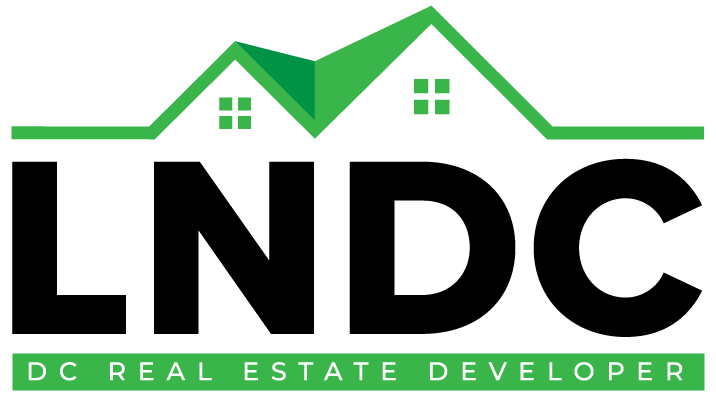How Economic Changes Affect Real Estate Investment: What You Need to Know
Real estate investment is one of the most popular ways to build wealth, but it’s also highly sensitive to economic changes. Whether you’re a seasoned investor or just getting started, understanding how economic fluctuations impact real estate is essential. The economy has a direct effect on property values, rental income, and the overall investment landscape. Let’s break down the most important aspects of how economic changes influence real estate investment and what you should keep in mind as you navigate the market.
Understanding Economic Drivers in Real Estate
The economy plays a crucial role in the performance of real estate markets. Factors such as inflation, interest rates, employment rates, and consumer confidence can all have a profound impact on property prices and investment returns. When the economy is booming, people are more likely to buy homes, invest in commercial properties, or take on new rental properties. On the other hand, during periods of economic downturn, investments in real estate may slow down due to higher risks and lower returns.
One of the most significant economic drivers that influence real estate is interest rates. When the central bank raises interest rates to curb inflation, borrowing becomes more expensive. This results in fewer people qualifying for mortgages, which can reduce demand for residential properties. Higher rates also make it harder for investors to finance commercial properties, which can lead to a slowdown in development projects and property sales.
Economic factors like employment rates and consumer spending are also critical. When people have stable jobs and a steady income, they are more likely to invest in homes or rent properties, driving up demand. In contrast, if there is widespread unemployment or low consumer confidence, the demand for real estate tends to decrease.
The Role of Inflation in Real Estate Investment
Inflation is another economic factor that heavily impacts real estate investments. Inflation refers to the rise in prices of goods and services, including construction materials and home prices. As inflation increases, the cost of building new homes or maintaining existing properties also rises. However, real estate can often act as a hedge against inflation, as property values tend to increase over time, even in periods of inflation.
For investors, inflation can also affect the return on investment (ROI) of rental properties. As inflation drives up the cost of living, rental prices may also increase, which could lead to higher income from properties. However, landlords should be cautious, as inflation can also lead to higher property maintenance costs, taxes, and insurance premiums.
How Economic Recessions Impact Real Estate
Recessions are a natural part of the economic cycle and can significantly affect real estate investment. During a recession, economic growth slows, unemployment rises, and consumer spending drops. For real estate investors, this can mean a decrease in property values and lower demand for rental properties.
However, recessions can also present investment opportunities. While many investors pull back during an economic downturn, savvy investors may find bargains in distressed properties or distressed real estate markets. In some cases, property values may dip temporarily, presenting an opportunity to buy at lower prices before the market rebounds.
Additionally, in a recession, investors who focus on long-term stability can still make solid returns by purchasing properties in prime locations. A down market can be an ideal time to acquire assets at a discount and hold them until the economy recovers.
What You Need to Know About Economic Indicators
To stay ahead of the curve, real estate investors should monitor key economic indicators. These include:
- Interest Rates: Watch the Federal Reserve’s decisions to adjust interest rates. Rising rates often signal a slowdown in housing demand.
- Unemployment Rates: High unemployment can lead to reduced demand for housing and commercial properties.
- Consumer Confidence: When consumers are confident in the economy, they are more likely to invest in homes or businesses.
- Gross Domestic Product (GDP): A growing GDP indicates a healthy economy, which can be beneficial for real estate investments.
By keeping an eye on these indicators, you can make informed decisions about when to enter or exit the market.
How to Adjust Your Investment Strategy During Economic Changes
Adapting your investment strategy to economic conditions is crucial to maximizing profits and minimizing risks. If you’re an investor, consider these strategies based on current economic trends:
- Focus on Cash Flow: During times of economic uncertainty, prioritize properties that provide consistent rental income. Rental properties can offer a stable income stream even if property values fluctuate.
- Invest in Growing Markets: Look for regions or cities that are experiencing growth, even during economic downturns. For example, areas with increasing employment or infrastructure developments often offer better long-term investment opportunities.
- Diversify Your Portfolio: To protect against economic downturns, consider diversifying your investment portfolio. Don’t rely solely on one type of real estate; diversify between residential, commercial, and even land investments.
It’s important to remember that economic changes will always impact real estate, but those who stay informed and flexible in their investment approach can weather any storm.
If you’re interested in learning more about how economic shifts affect real estate or want to explore the latest properties for investment, contact us. We’re here to help you navigate the ever-changing market and find investment opportunities that align with your goals.
For more information on upcoming properties, check out our Coming Soon section, or explore our properties on market to see available investment options today!
In conclusion, understanding how economic changes affect real estate is key to making sound investment decisions. Whether you’re looking to buy, sell, or rent, staying aware of economic factors like interest rates, inflation, and recession trends will give you a significant advantage in the competitive real estate market.


